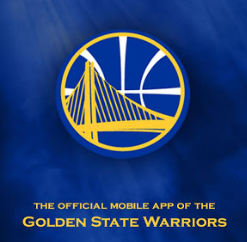In this political season, much has been made about late-night Twitter rants targeting women and other social media attacks on individuals and celebrities. Although these harsh online critiques create a more hostile cyber community, more imminent danger may arise from the safety risks that accompany online activity in general. Law-enforcement officials have long warned users against disclosing travel plans on social media to would-be thieves by, for example, posting pictures of a boarding pass from that long-awaited trip to Barcelona. But what about apps and services like Find My Friends, where users can share their location with up to 50 friends, or Snapchat, which shows a user’s location when posting an image or video? With a culture focused on sharing and instant access to information via social media feeds, it bears considering if location-revealing apps engender some inherent danger, whether the app developers disclose potential risks, and what steps can be taken to protect personal safety.
Articles Posted in Privacy
Beacons, Basketball and the App that Hears Too Much
 What are the privacy limits when users give permission for an app to access their smartphone’s microphone? A purported class action filed last week by LaTisha Satchell (a New York resident) against the Golden State Warriors (the first NBA franchise employing such an app), Signal360 (the New York-based licensor of the relevant technology) and Yinzcam (the Pennsylvania-based app developer) tackles this issue. Plaintiff filed her complaint in the Northern District of California, asserting violations of the Electronic Communications Privacy Act of 1986 for the class that downloaded the Android version of the Warriors app and for a broader class of those using any Android app with the Signal360 technology.
What are the privacy limits when users give permission for an app to access their smartphone’s microphone? A purported class action filed last week by LaTisha Satchell (a New York resident) against the Golden State Warriors (the first NBA franchise employing such an app), Signal360 (the New York-based licensor of the relevant technology) and Yinzcam (the Pennsylvania-based app developer) tackles this issue. Plaintiff filed her complaint in the Northern District of California, asserting violations of the Electronic Communications Privacy Act of 1986 for the class that downloaded the Android version of the Warriors app and for a broader class of those using any Android app with the Signal360 technology.
Hulk Hogan’s Legal Leg Drop Sets Precedent for Celebrity Journalism
 Famed wrestler Hulk Hogan’s $140 million trial verdict against Gawker Media for publishing a tape of him having relations with his best friend’s wife and using racially offensive language, sends a clear message that despite the proliferation of Internet journalism, social media, paparazzi, and the 24 hour news cycle, celebrities are still entitled to privacy in their most intimate moments—at least for now.
Famed wrestler Hulk Hogan’s $140 million trial verdict against Gawker Media for publishing a tape of him having relations with his best friend’s wife and using racially offensive language, sends a clear message that despite the proliferation of Internet journalism, social media, paparazzi, and the 24 hour news cycle, celebrities are still entitled to privacy in their most intimate moments—at least for now.
Joint Commission Ends Ban on the Texting of Physician Orders
In the Joint Commission Perspectives May 2016 edition, the Commission reversed its 2011 position prohibiting clinician texting of patient orders within accredited health care institutions, stating technological advancements now allow for secure transmission. The Joint Commission first issued its ban in 2011 by posting an often overlooked response to the frequently asked question regarding the by then ubiquitous communication tool: “[I]t is not acceptable for physicians or licensed independent practitioners to text orders for patients to the hospital or other healthcare setting. This method provides no ability to verify the identity of the person sending the text and there is no way to keep the original message as validation of what is entered into the medical record.”  While the Commission did not have a specific policy against electronic communications, its FAQ response highlighted concerns surrounding texting’s privacy, security, reliability and record retention shortcomings. Following FAQ response’s posting, institutions accredited by the Commission were expected to comply with the texting ban on clinical orders. However, recent studies have shown that permitting the texting of orders within health systems could significantly increase hospital efficiencies and reduce the length of patient stays.
While the Commission did not have a specific policy against electronic communications, its FAQ response highlighted concerns surrounding texting’s privacy, security, reliability and record retention shortcomings. Following FAQ response’s posting, institutions accredited by the Commission were expected to comply with the texting ban on clinical orders. However, recent studies have shown that permitting the texting of orders within health systems could significantly increase hospital efficiencies and reduce the length of patient stays.
Ashley Madison Update: Hacked Data Is Off-Limits
On April 29, 2016, Judge Ross issued his ruling on Ashley Madison’s motion for a protective order, prohibiting Plaintiffs from using the leaked documents, reports quoting the leaked documents, and information “stolen from Avid” in drafting their consolidated class action complaint. The result was largely policy driven, with Judge Ross stating broadly, “the Court cannot and will not allow Plaintiffs to take advantage of the work of hackers to access documents outside the context of formal discovery. To do so would taint these proceedings and, if left unremedied, potentially undermine the integrity of the judicial process.” The Court also ruled that it had inherent authority to issue a protective order with respect to documents obtained outside the course of normal discovery, and distinguished cases cited by the Plaintiffs in opposition. Rejecting Plaintiffs’ First Amendment argument, Judge Ross notes, “[j]ournalists … are in a completely different position than parties involved in private litigation. No doubt exists that the news media enjoy the freedom of ‘the press;’ however, the conduct of attorneys is informed by their ethical responsibilities as officers of the Court.” The amici briefs submitted by other Ashley Madison users made an impact on the Court as the Court found that the leaked information could not truly be considered “readily available to the public” due to the efforts of the other users to protect their privacy following the leak, as asserted in their briefs. Ultimately, Judge Ross emphasized the need to “protect the integrity of the internet and make it a safer place for business, research and casual use.”
Earlier posts on the topic:
Ashley Madison and Coming to “Terms” with Data Protection
From Ashley Madison to the Panama Papers: Is Hacked Data Fair Game?
FTC Guidance: Update Privacy Disclosures to Keep Pace with Advances in Online Tracking
The Federal Trade Commission recognizes that many people benefit from companies’ online tracking by getting advertising that is more targeted to their preferences. However, as the technologies and techniques used by companies and advertisers to uniquely identify and track individuals’ online behavior advances, the FTC warns that companies’ privacy disclosures and practices must be updated. Failure to do so could be considered deceptive under the FTC Act.
News of Note for the Internet-Minded – 4/28/16
From Ashley Madison to the Panama Papers: Is Hacked Data Fair Game?
We’ve previously written about the distinctions between hacking credit and other financial data in comparison to hacking private information. (See Ashley Madison and Coming to “Terms” with Data Protection.) The issue of how much protection the latter receives when it relates to attorney-client communications is currently before the District Court of the Eastern District of Missouri in the multi-district litigation arising from the July 2015 Ashley Madison leaks. Plaintiffs—former users of the site who claim that Ashley Madison defrauded the public by creating fake female profiles to lure male users—hope to use leaked information in their consolidated complaint against the site, due to be filed June 3 of this year. The leaked information sought to be used includes references and citations to emails between Ashley Madison’s parent company, Avid Dating Life, and its outside counsel.
Google and Oracle Agree to Ban Internet Research on Jurors … this Time Around
In a March 25, 2016 Order, Judge William Alsup of the Northern District of California gave Google and Oracle the choice between agreeing to a ban on conducting Internet and social media research on jurors until the trial is concluded or agreeing to disclose details as to the scope of their intended online research. As we wrote previously, Oracle is suing Google for copyright infringement on its Java API code. Google told the Court it was willing to forego digital research on jurors so long as the ban applied equally to both parties. Oracle, however, was not willing to agree to the ban.
Google Searches & Jury Selection: What Role Should Social Media Have in Voir Dire?
We have written previously about the role of traditional discovery roles in “newer” platforms, and how social media content can be discoverable and used in litigation. What about using information from social media in jury selection? U.S. District Court Judge William Alsup says no.
 Internet & Social Media Law Blog
Internet & Social Media Law Blog




